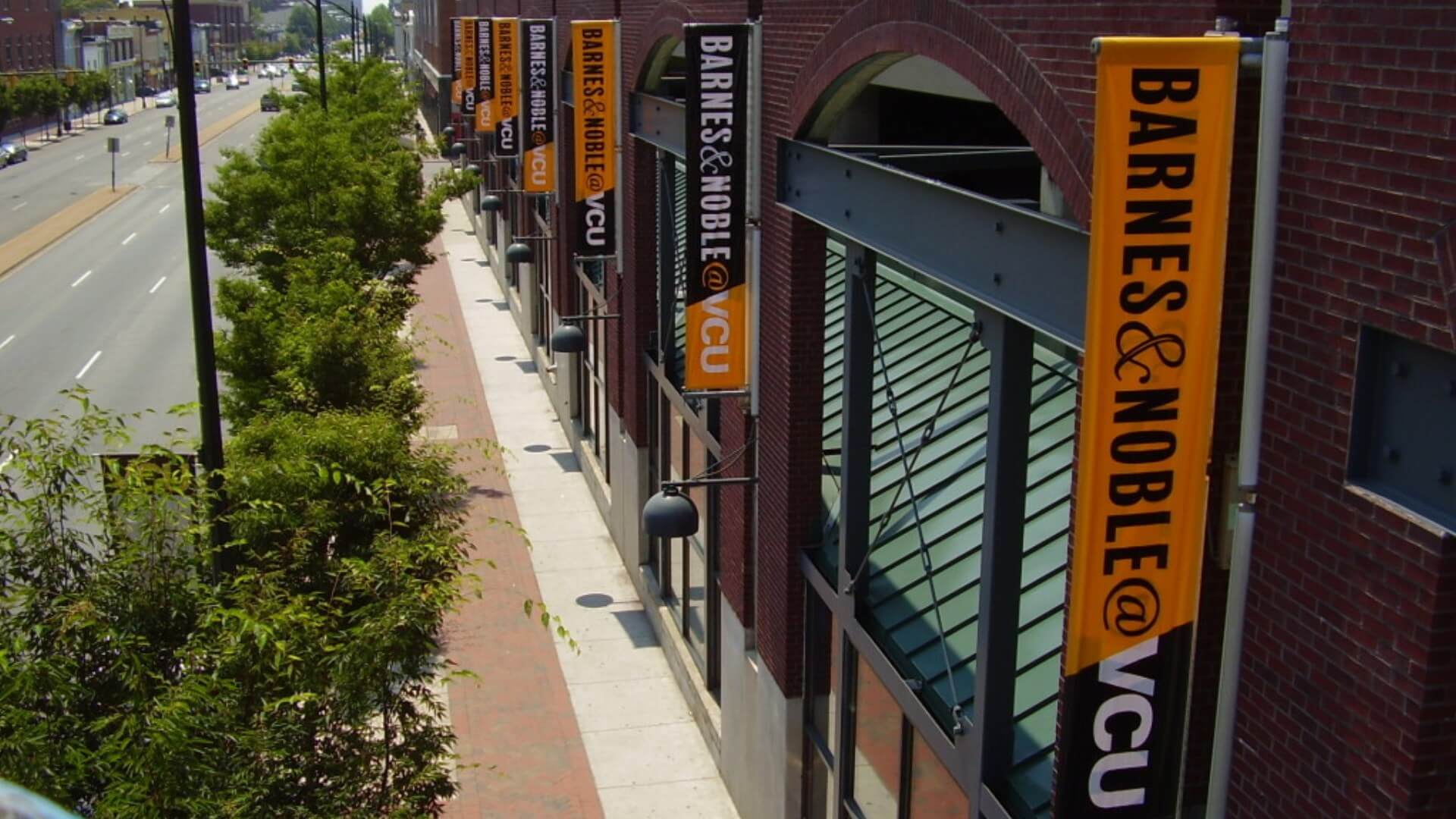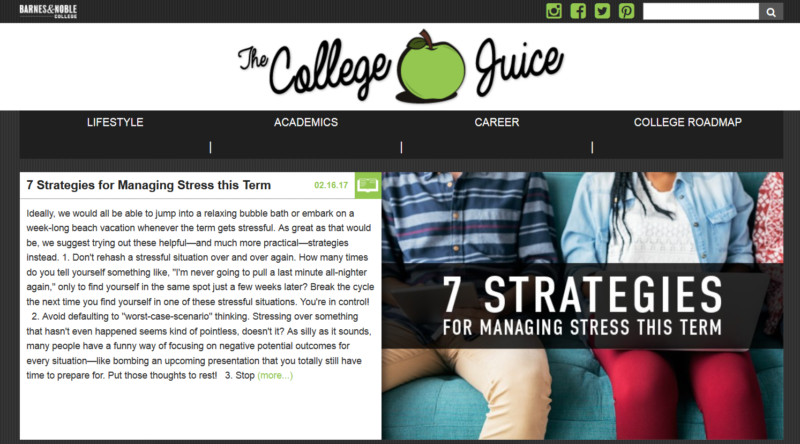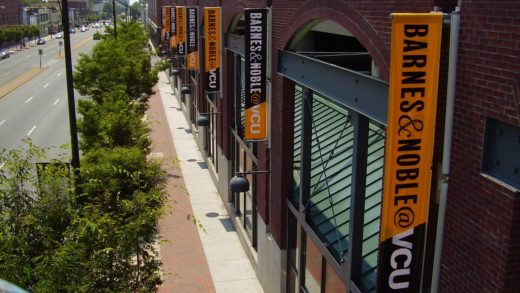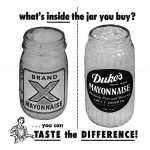A CMO’s View: How Barnes & Noble College builds its marketing around Gen Z & Millennial needs
Lisa Malat says her brand is focused on initiatives that support the academic and social experience of the students it aims to serve.

As Barnes & Noble College’s CMO, Lisa Malat says her primary goal is to align her brand’s strategies with the mission of the university partners it serves.
“All of our programs, our initiatives, and our messaging is really all around supporting the academic and social experience of our students, of our faculty, of our alumni, and making sure that we’re always on point and aligned with that mission,” says Malat.
Currently, there are 770 Barnes & Noble College campus stores across the country, from the largest location at Harvard University to the more than 200 community college locations.
“Leonard Riggio, the founder of Barnes & Noble, actually started with an off-campus bookstore across from NYU in New York City because his passion was to serve students, and he felt students deserved more than the experience they were getting at their school at the time, and that he could do it better,” says Malat.
“The heart and soul of Barnes & Noble really started in the college bookstore industry and then grew from there.”
For today’s CMO’s View, Malat shares how the college bookstore is meeting the needs of its customers by employing marketing strategies around the demographics it serves, from Gen Z and Millennials to older, non-traditional students.

Lisa Malat
CMO @ Barnes & Noble College
Takeaways:
1. The relevancy of the message — understanding and having insights about your target audience so you’re delivering something that’s relevant and meaningful and important to them where they are in their journey.
2. Value is important. Look at ways to offer more beyond the price — how do you help your brand come to life and deliver something that’s above and beyond the retail transaction?
3. Millennials and Gen Z have absolutely no patience for an experience that is not completely seamless. It’s important to look at all platforms, and make sure they are as integrated as possible so that the customer can shop in the most seamless way they can, whichever way they want.
Amy Gesenhues:I’d like to begin by getting an overview of the Barnes & Noble College customer. Who, or what demographic, is your primary audience?
Lisa Malat: Certainly, the Millennials and Gen Z, who are the students coming into college now, are a core demographic for us and a core audience; but, it goes way beyond that — who we market to and who we message to is much broader.
Beyond the classic 18- to 24-year-old student in school, what we have been finding through a lot of our research is that the nontraditional student — who is 25 and older, or they could be defined as nontraditional because they work 30-plus hours, or they have a family, they have children, etc. — is starting to make up close to 50 percent of the college students out there today.
It’s very interesting. What really drives me and what we have to make sure we’re always delivering is to be on top of what’s happening on college campuses, what’s happening with the consumer — and to be ahead of these changing demographics.
We do that through a robust research platform that we’ve built out over the last four or five years that allows us to stay in touch and ahead of who we’re serving, what their specific needs are, and how we can develop programs and strategies that support them.
AG: Where do you focus the brand’s social efforts to reach your varying demographics?
LM: Right now we have strategies across all social channels, certainly Facebook, Snapchat, Instagram, and Pinterest. We’re finding that our students, in all of our research, want their messaging, or their relationship with the bookstore, to be more through email and more experience-driven within our retail space on campus.
We certainly leverage Facebook, and we do have a Facebook page for every one of our 770 campus bookstores. We leverage that very much from a promotional perspective for sure — making sure that students know when we’re running promotions or special offers in the bookstore.
Facebook for us is very much executed at a local level — it very much serves as a customer service platform. If students on campus are having any kind of questions about their books or the bookstore experience or something they need, they tend to leverage the bookstore’s Facebook page and our store managers are able to respond to that at a local level.
Our store managers are able to leverage Facebook to deliver a very local, personalized, targeted message to their students.
AG: Are you guys doing any SMS marketing with students or using Facebook Messenger?
LM: No, we’re not. We did do lots of research on it, and we’re just not finding that our students are receptive to getting a brand message through text.
What we did do, however, through some of that research, we recognized the importance of a mobile app for our students — to be able to streamline the whole back-to-school and textbook buying experience. Having them be able to have all of their orders, reminders about when to pick up orders, or when to return their rental books, all within an app — being able to push out promotions for them that are local and relevant to their specific campus.
Every campus has such a unique culture, and then just being able to leverage that as a way for us to gather feedback on their experience in our stores so we can continue to improve.
AG: How has social engagement with your different audiences impacted the brand’s overall marketing efforts?
LM: What we found successful for us is taking that social engagement into the stores and doing it live. We’ve established the bookstore as a social hub on campus, so it might be very different than our experiences when we were all in college.
The bookstore today is a central hub and we have a very robust calendar for the year, where we align with the university and what the specific student journey is on that particular campus, and host a series of events in our stores.
Let me give you an example. We learned that our new students are coming to school very stressed out about the transition from high school to college. They’re looking for help and support and concierge service in the bookstore, so we established what we call VIP Shopping Nights, which is where we close the store to everyone else and just invite the freshmen.
Through that experience, we’re able to help them get the books and all the tools they need for academic success. But, at the same time, host fun, interactive activities where they can meet and greet, and engage with other members of their class to feel like they’re getting off on the right foot — that they’re building these connections and relationships.
We’ve gotten some wonderful feedback where around 70 percent of the students who attended said that it made their transition to college easier and that they met their first friend.
That’s how we engage socially on the campus, we open up our doors and host events and activities that align with the student journey — like the VIP Night for freshmen, or a de-stress event around midterm time when students are all stressed out and worried about their exams, or a new Wellness event we’re going to host in January and February to help students think about their physical, emotional, and financial health, and then all the way through to graduation.
These events have been successful for us, and helped us build that close relationship with students.
AG: Can you share more about TheCollegeJuice.com, and how it fits into your digital marketing strategy?
LM: As I said before, our mission is to be a complete support system for the students, and we work hard to rise above the transaction. This is not just about getting their textbook business or getting them to buy a sweatshirt.
We want to support them through their entire academic journey. All of the research we’ve done — whether it’s Millennials, Gen Z, the non-traditional student — the common thread through all of that is this message of connection and support.
So no matter what demographic you are, attending school today, people are stressed out, and people feel pressure, and people are seeking help and support. From those insights, we established The College Juice.

The College Juice is meant to be is a place where students can go to get information that is relevant and helpful for them about their college experience. It could be DIY-tips for how to set up a dorm room or how to get along with your roommate. It could be financial advice about budgeting. We could be talking about how to maximize your microwave to eat in the dorm. It could be about career planning, and how to get ahead of the whole career roadmap and start your planning early on.
It’s based on what our students are telling us through the research that we do — what is top of mind, what their emotional states are at different points in the journey. We seek to provide relevant and helpful information and content that’s going to help them along the way.
AG: What type of content is getting the biggest response on TheCollegeJuice.com?
LM: Right now, the blog is very focused on the Millennial student, and what we’re finding is the most clicked on — or the most read stories — tend to be around the career piece.
I was just at Duquesne University a couple of weeks ago, and I had an opportunity to meet with 20 of the top female student leaders on campus. They wanted to understand my journey, my career journey as a woman and how I navigated, how I planned, and the decisions I made along the way.
What I took away from that is students in school — as they’re getting ready to graduate — are so stressed out and concerned and worried about their career, about, “Well I majored in this, but I have a passion or interest in that, how do I align it? Does my first job have to reflect everything I want to be as I grow up in my career?”
I think that students are seeking that support and guidance and advice as they transition from college to career, and we’re finding that is one of the most read columns on our site.
AG: What are your biggest challenges around marketing to younger audiences?
LM: I think it’s important that you understand their values and their different needs, and make sure that everything you do is very relevant and very authentic for this generation.
We found that Millennials, in general, the headlines often paint them as being driven by money or prestige, time and time again; but everything we’ve learned about Millennials points to personal fulfillment trumps money and status — that’s an important thing to understand for marketers.
We worked with “Money Magazine” on the value of college study, and that showed us when students were looking to pick a school, they cared less about the brand name and the prestige than their parents did, and instead, looked for an overall experience that was more personally fulfilling.
That’s how we approach our engagement with Millennials, delivering that experience in our stores — an opportunity to deliver more than just the product, but to deliver the value.
For example, I talk about these events that we hold in stores. As part of that, we work with our different brand partners — it could be Kind Bars, it could be Coke, it could be Hershey, Mars, it could be at Bed Bath & Beyond — where we give the brands an opportunity to engage directly with students at our stores.
Moisturizers of ALL kinds are our best friend in winter. Shop in store and find your favorite Burt’s Bees lip balm. pic.twitter.com/AZxnHuxUv1
— Georgetown Bookstore (@BNGeorgetown) February 15, 2017
Students are always so excited about that opportunity to be able to actively engage with these brands, and allow the brands to bring their products and to bring their message to life.
I think delivering the experience beyond just the transaction, and creating retail spaces that reflect the culture of that campus and the journey that they’re on, is critically important.
Marketing Land – Internet Marketing News, Strategies & Tips
(22)














